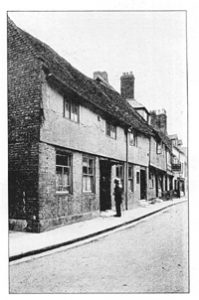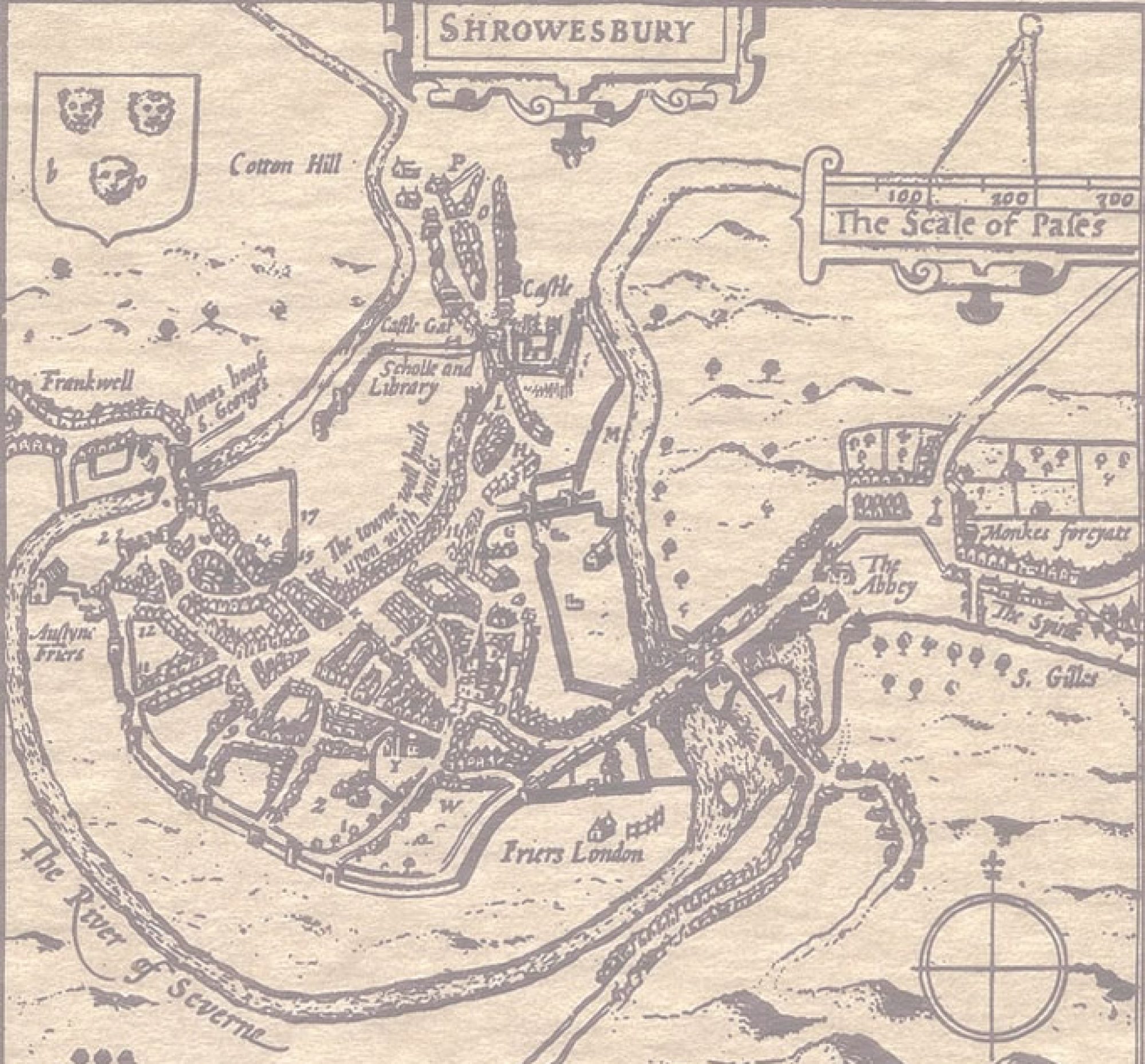For some time I have been researching the history of the way the church in Shrewsbury and Shropshire has grown in the past. Here are several examples.

From George Fox’s Diary 1656-7. Fox (1624-91, left) was the founder of the Society of Friends (Quakers), through whom God brought revival in the middle of the 17th century:
‘In this year the Lord’s truth was finely planted over the nation, and many thousands were turned to the Lord; insomuch that there were seldom fewer than one thousand in prison in this nation for Truth’s testimony… After [a visit to Brecon] we returned to England, and came to Shrewsbury, where we had a great meeting, and visited Friends all over the [county] at their meetings, till we came to William Gandy’s in Cheshire. There we had a meeting of between two and three thousand people, as it was thought; and the everlasting Word of Life was held forth and received that day.’ [quoted from this website]
John Wesley (1703-91) made at least 17 visits to Shrewsbury. Here is a flavour of them from his Journal:

Monday March 16th, 1761, ‘When I came [to Shrewsbury] my head ached, as well as my side. I found the door of the place where I was to preach [in Fish St] surrounded by a numerous mob… Part of them came in; almost all that did (a large number) behaved quietly and seriously.’
Tuesday March 17th, ‘At five [in the morning!] the congregation was large and appeared not a little affected…’
Monday March 29th, 1762, ‘[On the journey from Hereford] the wind was piercing cold, and we had many showers of snow and rain; but the worst was, part of the road was scarcely passable; so that at Church Stretton one of our horses lay down and would go no further. However, William Crane and I pushed on, and before seven reached Shrewsbury. A large crowd quickly gathered together. Many of them were wild enough, but the far greater part were calm and attentive and came again at five in the morning.’
Sunday July 22nd, 1764, ‘In the evening I preached at Shrewsbury to a large congregation, among whom were several men of fortune. I trust, though hitherto we seemed to have been ploughing on the sand, there will at last come some fruit.’
Much fruit did indeed come about, so that by 1781 Wesley was able to write:
Tuesday March 27th, 1781, ‘I went a little out of my way in order to open the new preaching house at Shrewsbury [in Hill’s Lane]. I did not so much wonder at the largeness, as at the seriousness of the congregation. So still and deeply attentive a congregation I did not expect to see here; how apt we are to forget that important truth, ‘All things are possible to God’. [Wesley’s Journal is available online here; I have also used John Barker, Shrewsbury Free Churches, their History and Romance, published privately around 1910]
The Shrewsbury Chronicle of April 1st 1808 recorded:
‘On March 4th there was a general meeting of the Methodists at Aberystwyth…when the jumping and horrid yells and screams, made at the end of the service, exceeded anything of the kind ever witnessed before. No less than 1,510 horses went through the toll gates, and it has been pretty accurately ascertained that the whole number of persons assembled amounted to 7,500, though the jumpers are generally allowed to be on the decline…Be that as it may, to their honour, they collected…upwards of £20 [about £680 at today’s prices – poor people earned £20 a year] for the relief of English prisoners in France.’
The history of Shrewsbury Baptists records that they planted eight daughter churches in the 14 years between 1806 and 1820. Despite this, the membership of the mother church rose during the period 1796 – 1817 from 20 to 195. The writer goes on to record that, ‘In 1839 a series of revival meetings was followed by a large increase in church membership. In two years 107 new members were baptised.’ [Anonymous, Dun’s Shut to Claremont Street, 1620-1970, published by the Baptist Church]
The Primitive Methodists were a group who sought to revive the Methodist Church at the beginning of the nineteenth century. [Joseph Ritson, The Romance of Primitive Methodism, Primitive Methodist Publishing House, 1909] From their beginnings in the Potteries, the movement soon spread to Oakengates, in what is now Telford. In 1822 a Primitive Methodist Society was formed in Shrewsbury, and in May it was visited by Miss Sarah Spittle from Oakengates. She wrote: ‘Sunday 30th, I preached three times to very large congregations… There are forty four in Society and there is likely to be a good work.’ [John Petty, The History of the Primitive Methodist Connexion from its origin to the Conference of 1859, London, 1860, pp.136-137; see also, 125th Anniversary booklet of Belle Vue Methodist Church, 2004]
At the beginning of August the group was visited by James Bonser, who wrote:
‘I was in Shrewsbury on Sunday last, and found the work of God prospering. We have received 60 members in this short time. Last Sunday, however, I met with some opposition… At two in the afternoon I came into [Shrewsbury], and hearing that hundreds were met together to be hired for the harvest work, I resolved to go and try to engage some of them for my Master. There was a large congregation, and the people were very attentive, but when I had nearly done preaching, the Mayor sent a constable to fetch me to the Town Hall. There I was told that if I would find bail never to preach there any more, I should be set free. Refusing to do this, the Mayor committed me to prison till the sessions. I went singing through the streets to the prison, hundreds following me. Many wept much, and when I bade them farewell, the town seemed all in confusion. I was in prison from about half-past four o’clock till half past twelve next day. [Bonser recorded elsewhere that he was brought no less than eight breakfasts by well-wishers that morning!] Prayer was made for me at the different chapels, and when brought before another magistrate on Monday, he set me at liberty. I preached on the Monday night. I had not quite all the people in Shrewsbury to hear me, but I had many of them. The occurrence has done us a deal of good in this town.’
Following this, ‘the humble missionaries of the Primitive Methodist body pursued their self-denying labours among [the inhabitants of Shrewsbury] with…success. Many vile sinners were reclaimed from their vicious practices through their instrumentality, and gave evidence of having become new creatures in Christ. The society flourished encouragingly, and soon became the head of a branch of the Oakengates circuit.’
